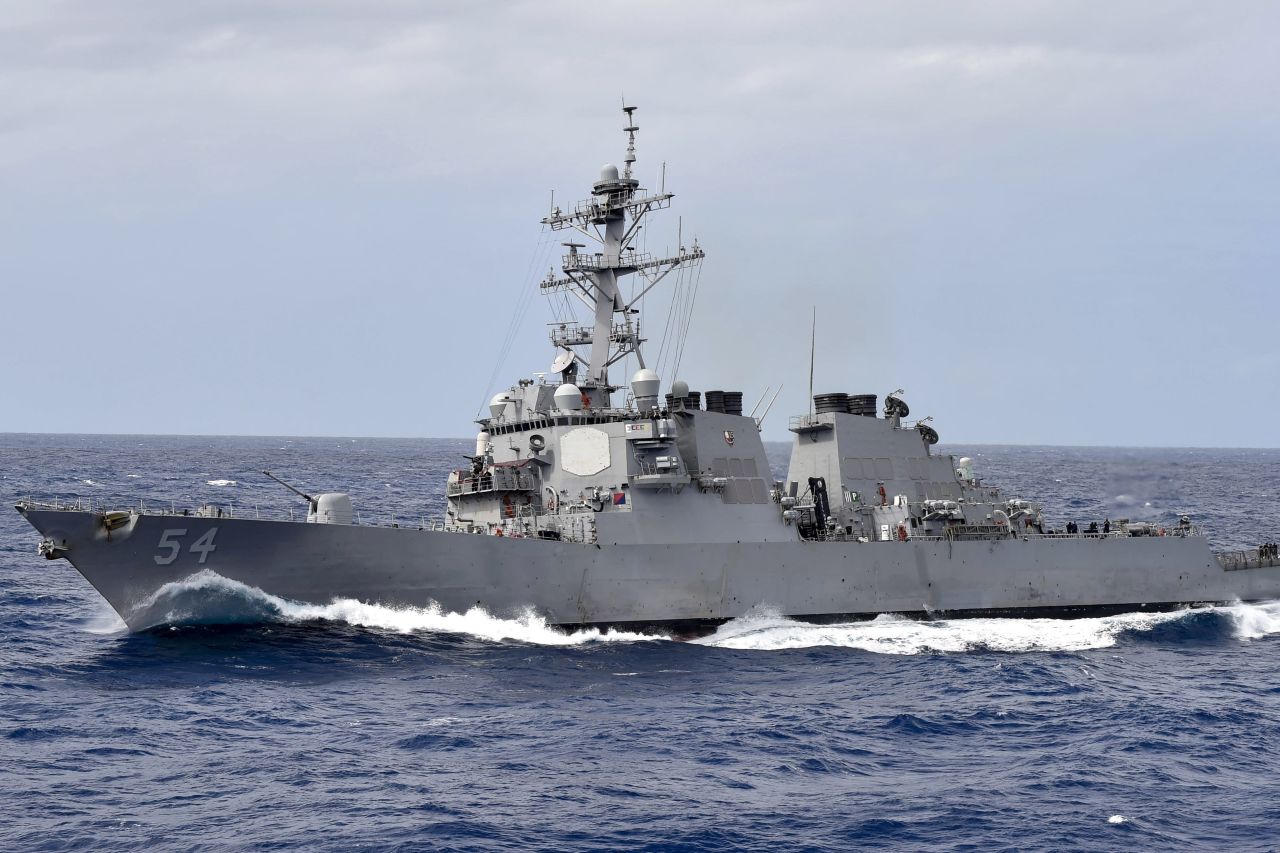
The Wall Street Journal reports that the Pentagon sent two vessels through the Taiwan Strait, a show of U.S. support for Taiwan likely to fuel concerns in Beijing that Washington is aligning increasingly with Taipei. The naval destroyer Curtis Wilbur and the Coast Guard cutter Bertholf conducted what Navy officials described as a routine transit through the Strait beginning Sunday local time. "The ships' transit through the Taiwan Strait demonstrates the U.S. commitment to a free and open Indo-Pacific," said Cmdr. Clayton Doss, a spokesman for the U.S. Pacific Fleet in Honolulu. "The U.S. will continue to fly, sail and operate anywhere international law allows." This is the third such operation in as many months. The Navy has begun to conduct more such operations to assert its right to sail through international waters as it sees fit. In addition to the transit on Sunday, such operations were conducted in January and February. Last year, the Navy sent ships through the Strait in July, October and November, according to Navy officials. The Pentagon also conducts routine freedom-of-navigation operations in the South China Sea to counter Beijing's claims on chains of islands there.
The New York Times reports that top Chinese economic policymakers promised this weekend that Beijing was ready to open up the country's economy to more market-based competition and international trade, in the latest sign of strong Chinese interest in ending a multibillion-dollar trade war with the United States. Senior American officials are scheduled to come to Beijing in the coming days for trade talks, with Chinese officials then headed to Washington the following week in an attempt to wrap up a deal. But Chinese officials have an extra incentive in pledging to loosen their hold over the world's No. 2 economy, and not just to the Trump administration. In addition to a trade war that is hitting the country's exporters, China's economy has also been hurt by private sector business leaders who have become increasingly cautious in recent months about making new investments...The tone of remarks at this weekend's session of the China Development Forum, the country's premier annual economic policy conference, was nonetheless striking. It appeared to represent a coordinated effort to present an international image of China as a country moving in the direction of greater economic openness. Han Zheng, one of the seven men who run the country as members of the Communist Party's Politburo Standing Committee, said that China wanted to keep increasing imports. "We do not strive for a trade surplus," he said.
- 2019-03-22 Trump Administration Strikes Tougher Stance Ahead of China Talks
- 2019-03-21 EU leaders to discuss stronger shield against Chinese influence
- 2019-03-20 US-China trade talks to resume after pause, US official says
- 2019-03-19 Trump Administration Proposes $86 Billion Spy Budget to Take On Russia and China
- 2019-03-18 Xi to Visit Europe in Bid to Offset Concerns, Boost Trade
- 2019-03-17 Trade Fight With China Enters Overtime, With Tariffs a Costly Sticking Point
- 2019-03-15 Amid skepticism, China fast-tracks foreign investment law to show goodwill to Washington
- 2019-03-14 Huawei pleads not guilty to U.S. charges in New York court
- 2019-03-13 Donald Trump’s trade chief warns that China talks could fail
- 2019-03-12 China’s ban on the Boeing 737 Max inspires others, ramps up pressure on U.S. regulator
- NY Times Xi Dines With Macron in France, and Pays a Visit to Monaco's Prince
- NY Times Xi Dines With Macron in France, and Pays a Visit to Monaco's Prince
- WashingtonPost Italian soccer federation signs deal with Chinese government
- Reuters With an eye on Iran, US clinches strategic port deal with Oman
- Bloomberg China Issues More Rules for Review of Listing on New Tech Board
- Bloomberg Sinopec Plans Highest Spending in Five Years to Grow Output
- Bloomberg China Officials Tap Lower Tariffs, Debt Sales to Aid Growth
- WashingtonPost China can't prettify the human rights catastrophe in Xinjiang
- The Hill China is choosing a different approach to stimulus — is the world ready?
- FT National champions are not the way to compete with China
- Bloomberg America's Big Advantage Over China and Russia: Demographics
- nationalinterest.org China's Navy Has Arrived (And the US Navy Should Be Worried)
